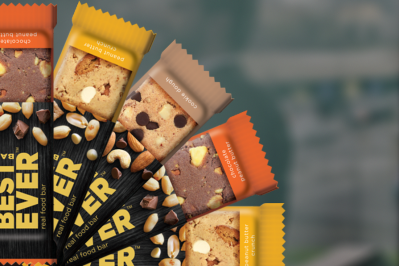Packaged Facts: Functional claims and ingredients continue to lure US consumers shying away from traditional 'snacks'

Thanks to rampant positioning of nutritional drinks and bars as a convenient, and healthier, on-the-go consumption option for the busy average American, sales for these two products have experienced “vigorous growth in recent years,” according to the report, which was published this month.
Included in this analysis were functional food and beverage items that use ingredients with stated functions such as nutritional support, weight loss, increased energy, or meal replacement.
Energy drinks, sports drinks, and milkshakes were excluded, and so were granola bars and snack bars not marketed as serving a specific nutritional purpose.
Driven by the busy people
The market hit $8.8 billion in 2016 after rising at an annual rate of 9.5% over the last five years. “The youngest age groups have the highest usage rates, with Millennials and Gen X consumers being the most likely purchasers,” according to the report.
Packaged Fact’s outlook for these categories’ future is bullish—combined, retail sales of the two categories are expected to rise 8.3% annually through 2021, reaching $13.1 billion.
“The growing tendencies of many young people to view busy as a ‘badge of honor’ will help to drive gains, as shakes are marketed as a suitable, convenient meal option for people who don’t have time to cook or prepare food,” according to the report.
More than half (57%) of consumers consume nutritional drinks as a meal replacement, followed by 46% as snacks, and 38% as pre- or post-workout fuel, according to Packaged Facts’ National Online Consumer Survey of 2,000 US consumers aged 18 and over.
Protein and ‘superfoods’ are a boon
The low barrier for entry in the nutritional shake and bar industry means new entrants keep coming in, resulting in a decrease of market share among the top nutritional shake and bar companies, according to the report.
The leading marketers in 2016 were Abbott Laboratories, Clif Bar & Company, General Mills, Kellogg, Nestlé, and SlimFast. Products in these categories by these marketers play on the continued demand for high protein content, with 72% of respondents saying this is a feature they look for when buying shakes, and 67% for bars.
But small companies can easily snap up consumers using their advantage of moving quicker than the bigger players, especially as more Americans seek novel flavors and ingredients amid trends toward healthy living and eating.
Examples include Amazing Grass’ Protein Superfood shake powders, which boast the in vogue ‘plant-based’ call-out, or Kuli Kuli’s nutritional bar with moringa.
















